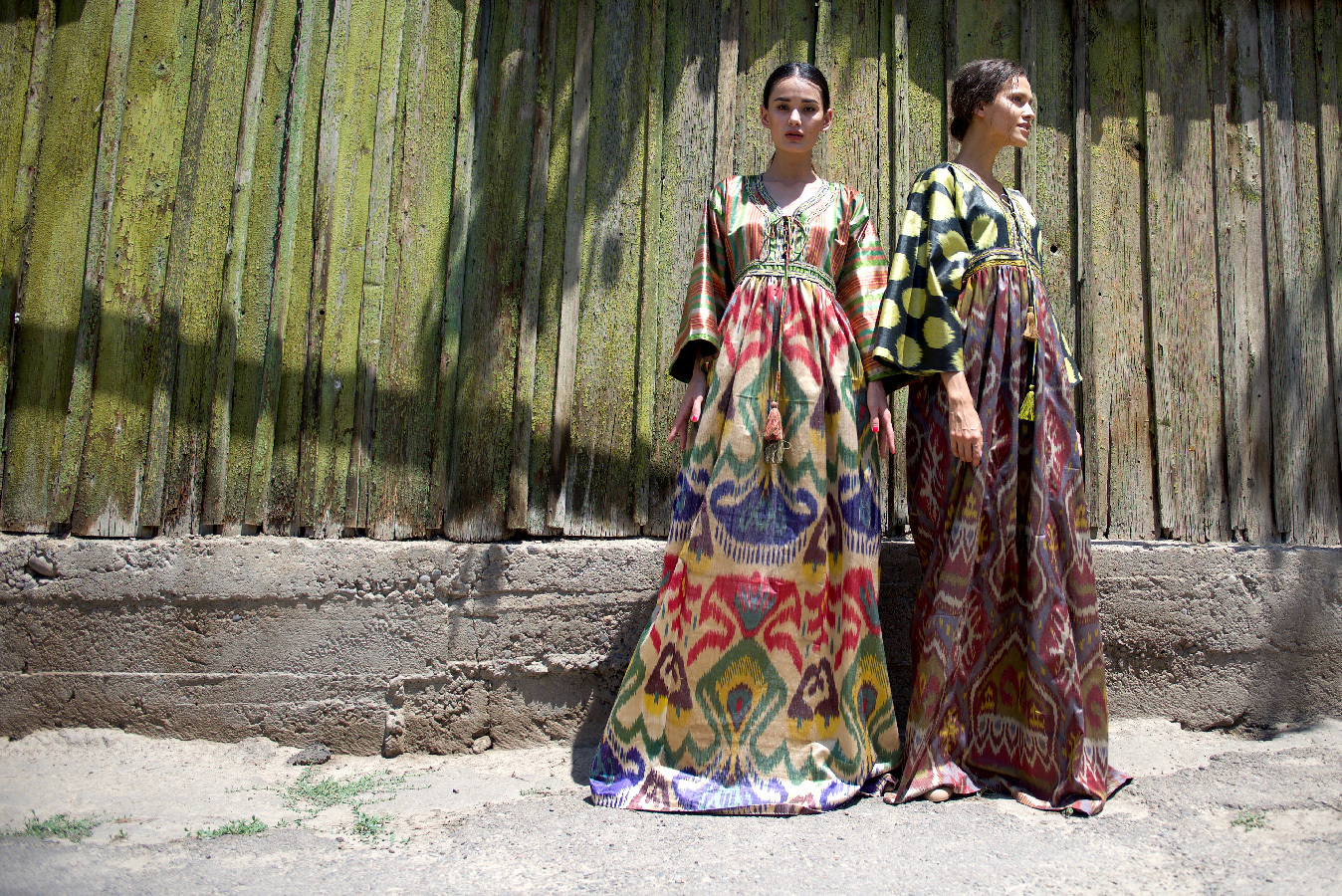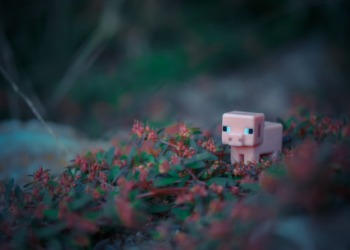Mobilising artisan employment through new fashion businesses has been a recurring theme for Impakter, with multiple companies providing inspirational stories about the creation of businesses allied with fair and equal opportunity for those who need it most.
Bibi Hanum is a social responsible enterprise, which creates garments and accessories using traditional, hand-woven textiles. It was founded by fashion and photo artist Muhayo Alieva in order to support women who lack economic assets and to help them develop new skills. I spoke to Muhayo Alieva to further understand the business:
Q: Could you describe the mission of Bibi Hanum? What inspired you to create it?
Muhayo Alieva: I founded Bibi Hanum, a fashion brand based on traditional textiles, in my mother’s garage in 2006 after watching the challenges faced by my older sisters who had married strict, traditional men. One of my sisters was not permitted to work outside the home. The other was married at 17 and had two children in rapid succession, curtailing her educational ambitions. It was difficult for me to see my sisters experiencing so many problems. I thought it was because they lacked education and they did not know how to solve problems. I did not want to have a similar life and wanted to help women as much as I could. I believe working women have a better life.
During my time working at the U.S. embassy, I came to understand something of the world beyond Uzbekistan, and cultivated mentors, all American women, who nurtured my entrepreneurial dreams, and opened doors to foreign markets. One of them was Christine Martens, a Central Asian textile researcher who knew a lot more than we did about our own textiles. She took me on trips to meet artisans and learn the secrets of ikat, a textile technique that involves dying threads before they are woven. I credit my mentors with changing my life. Additional aid came in the form of a grant from the Prince Claus Fund for Culture and Development in the Netherlands, that supported my revival of Uzbek traditional clothing. This allowed Bibi Hanum to further expand and created a broader base for reviving and creating new ikat designs for fashion.
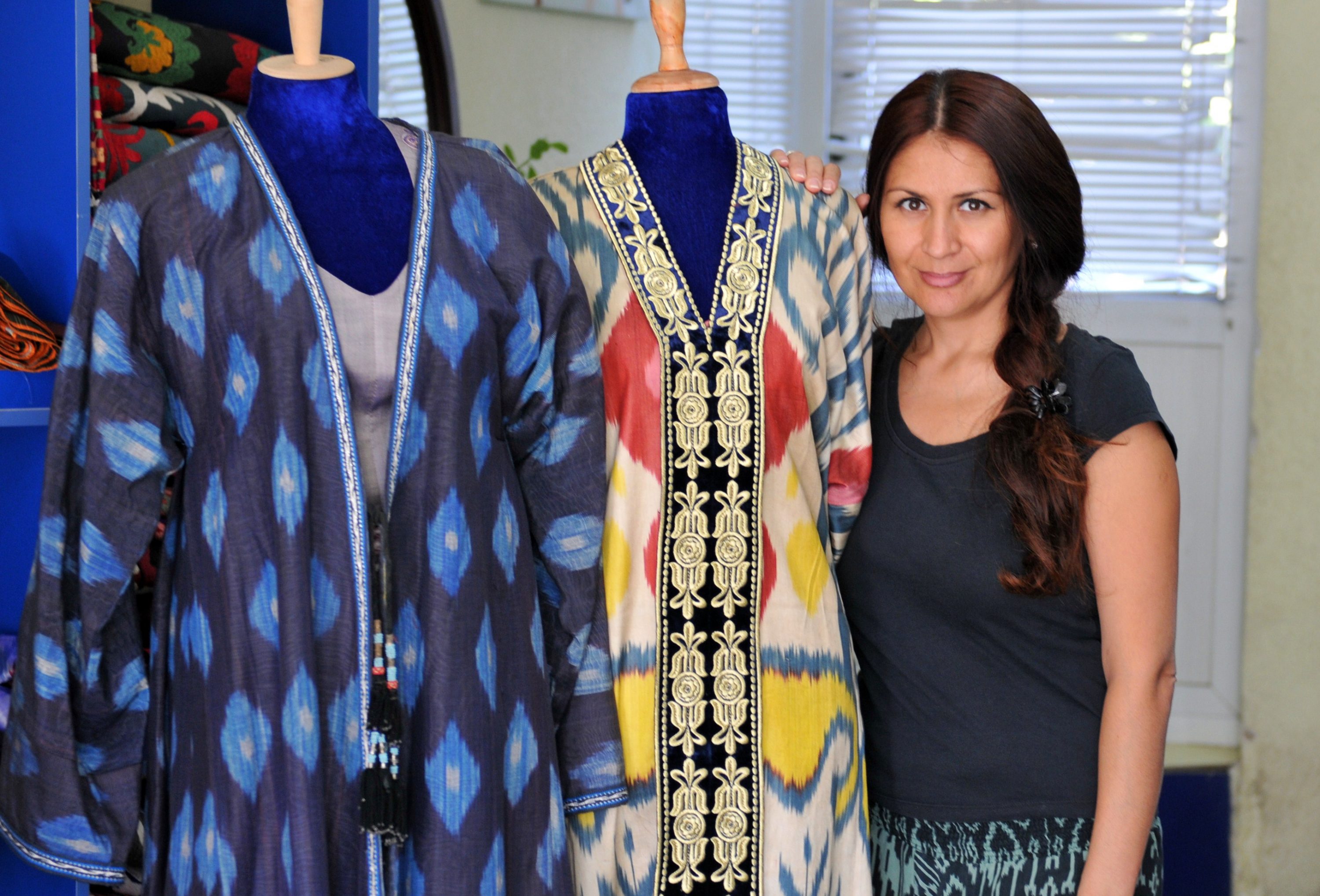
In the photo: Muhayo Alieva, Founder of Bibi Hanum Credit: Bibi Hanum
Q: What are the major challenges for sustainability in the consumer goods industry and how do you address the challenges?
MA: I believe that utilizing handmade textiles through fashion is a stepping-stone to a better life for the hundreds of women whom I eventually hope to employ. However, there are so many challenges that we face in order to maintain our business. Today fashion is moving too fast. Although artisan-based businesses are being advocated in some way, in reality it is hard to keep up with the fast fashion.
We face the reality when we attend major international garment shows and start interacting directly with the buyers. Although we notice great interest and fascination towards our products, we end up making few sales and long-term contacts. Often, the prices do not match the preferences of the buyers, because they are concerned about their end customers’ solvency. When it comes to making real deals and purchases, the consumer is only concerned about the cost, and there is very little interest in what lays behind the product, or what makes it more expensive than other products. Unfortunately, it is very difficult to keep up in the international marketplace especially when we have to compete with major factories and producers who have already occupied the market.
Fortunately, although not many, there are some folk art advocates who really work hard to promote artisan made art and try to sell the products by telling stories of each artisan. We have been participating in International Folk Art Market in Santa Fe each year which has also given us a great opportunity to sell and expose our products to direct consumers in the United States. International Trade Center’s SheTrades program has been helping us tremendously by offering us opportunities to exhibit in major international trade shows and exhibitions. Their free online webinars on international business and export have also given us access to first-hand knowledge on how to deal with customers at a corporate level.
We have also been working hard on developing our social media presence, and launched our newly designed online shop recently which is connecting us directly with customers.
Related article: TO THE MARKET: MOBILISING ARTISAN EMPLOYMENT by OLIVER SPEAKMAN
Q: What have been some major milestones in your journey? Where do you see Bibi Hanum heading?
MA: When we started we only had three people who were working in our studio and we used my mom’s garage. One of our successes was when we finally moved to a much bigger place where we could have better working conditions and our showroom with the store could fit easily.
Now in our workshop we have ten women working and we are employing many women who live in the regions who do our embroideries and weaving. We have been lucky to establish good working relationships with these women, although it was very hard to communicate the details of our work due to the long distance. After many trials and errors, we have come to understand each others’ expectations well and working is a lot smoother. This is one of our major milestone as the quality of our work depend on each individual who performs the detailed work that we provide.
Another major milestone would be Bibi Hanum’s efforts in preserving the cultural heritage. When we first started back in 2006, nobody would wear clothes made of traditional textiles and everyone would consider those as theatrical or museum objects. The ikat fabrics and suzani embroideries were almost forgotten during the Soviet era, as they were being replaced by western design and Chinese synthetics.
When I started our business, my main goal was to contribute to the preservation of our cultural and ethnographic heritage. I won a grant for reviving old traditional kaftans and ikat fabrics. The results were incredible, as it was the beginning of the ikat era. We had also launched our first ever online store in Uzbekistan where everyone could see and buy garments made of hand-made textiles.
Now, ikat is worn by not only Uzbek women, but also well received and worn internationally. Ikat production has been restored by many artisans in the regions thus improving their economic conditions dramatically. Now we are not only producing the old patterns of ikat, but also creating new ones. Each garment that we create is a work of art that integrates modern style with traditional techniques.
Our aim is to continue growing as a world-known ethical fashion brand that would gain consumer’s respect with its highest quality standards and artistic approach in creating its products. This way we can also meet our internal goals in employing hundreds of more women in the future. Hopefully our work is continuously valued by consumers so we can pass our cultural heritage to the generations to come.
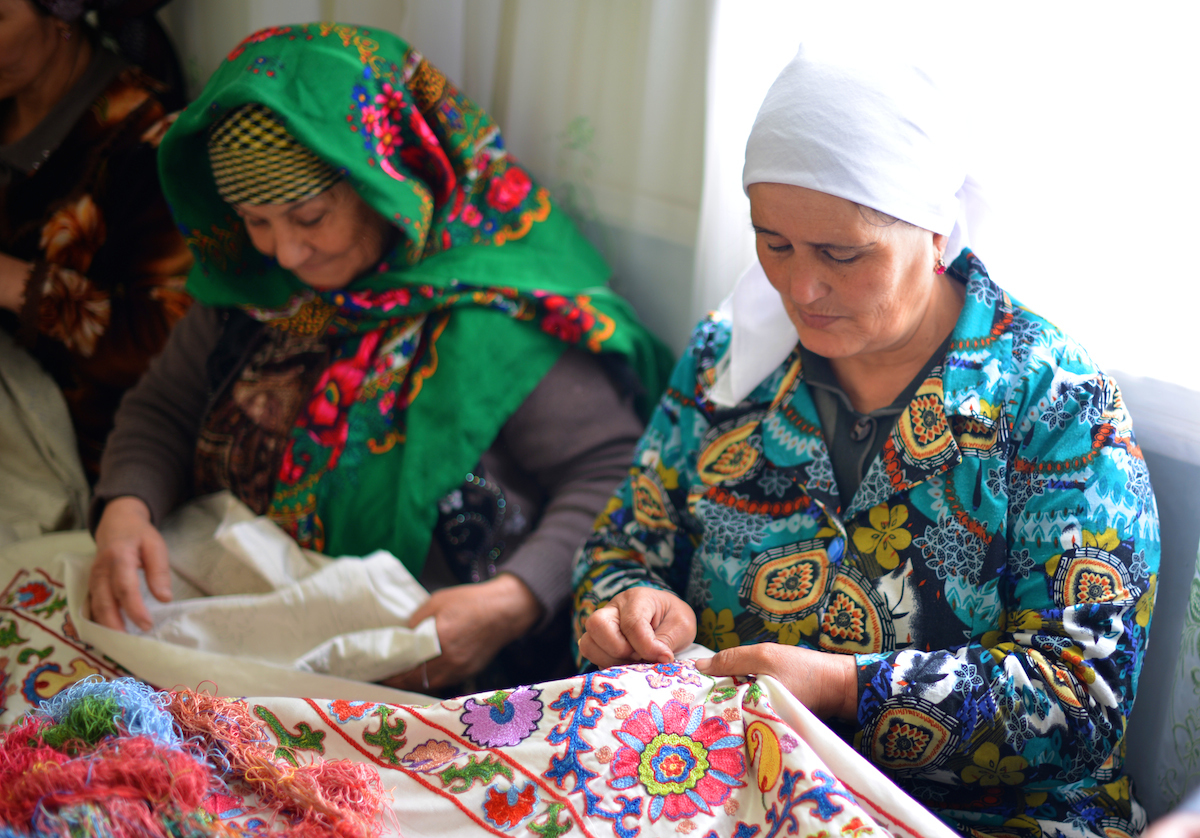
In the photo: Women in Uzbek dress creating Bibi Hanum garments Credit: Bibi Hanum
Q: What message or advice do you have for other companies focusing on cultural preservation?
MA: Culture is the identity of the nation. We are proud have our identity and we strive to retain it forever. In order to preserve our identity we have to pay attention to our history and tradition. We have been able to create both traditional and contemporary garments. We have made slight adjustments to the shapes and length and made them wearable for people.
By creating wearable art we are contributing to the victory of our traditions. Anybody who is focusing on cultural preservation understands that it is not an easy task to keep it going, however anything is possible if you can approach it with great enthusiasm and positivity. It is hard at the beginning but time and practice makes it easy, so be patient and continue improving the quality of the work, always continue educating and learning new ideas that could be integrated into the work without compromising the quality and traditional aspect of the art. Obstacles and hardships will always be there as it is the nature of any business that works for a good cause, look at them as temporary and the work will be rewarded unexpectedly.
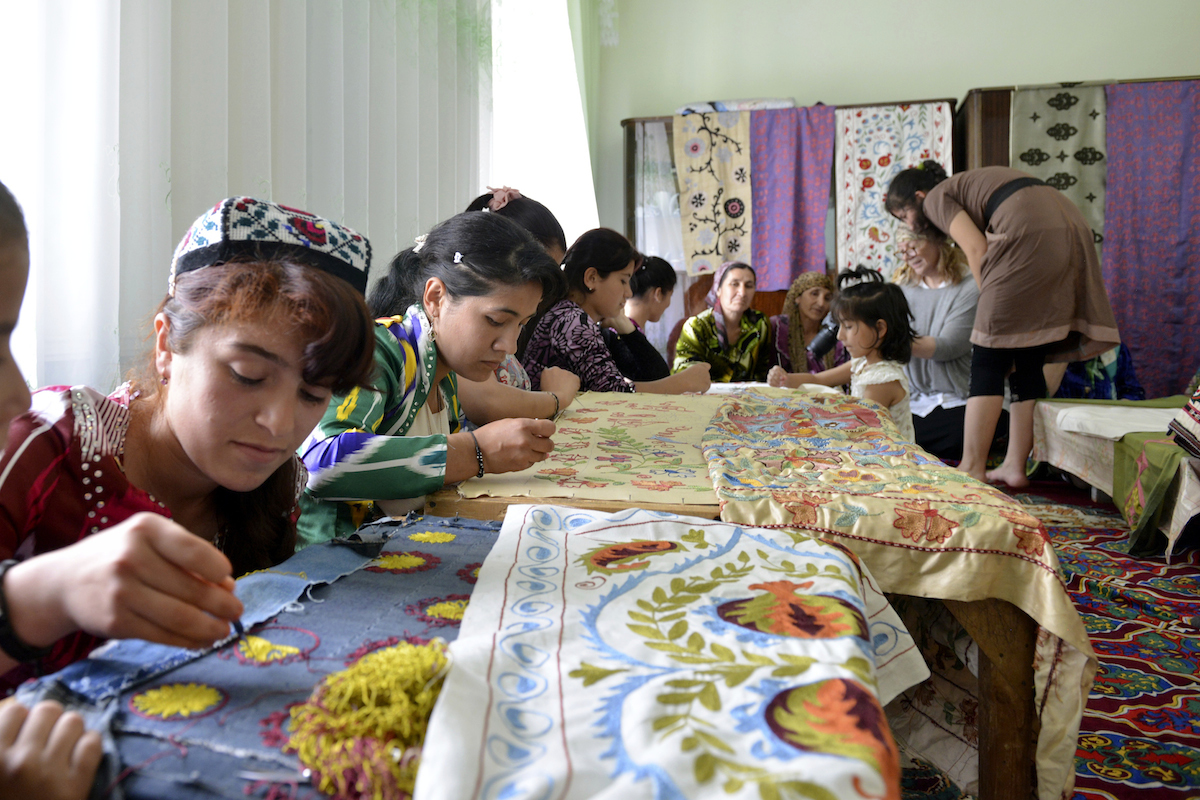
In the photo: Female artisans at work Credit: Bibi Hanum
Q: What are your views on sustainability? What are some ways the average citizen can contribute towards it?
MA: As I mentioned earlier, fashion is moving too fast and there are negative forces of globalization that are continuing to threaten the flow of our cultural art. We always have questions in mind “How can we increase the respect and honor towards the sustainable cultural expression, and how can we encourage the future generation to continue our handmade traditions?”
It is time for building an innovative marketplace that connects and informs artists and consumers.
Since many cultural enterprises are home-based, and many operate independently, a majority is overlooked by governments as valuable economic sectors. We should address sustainability at an international community level. The leaders of international communities should support and advocate for full participation of women in the global economy, recognize artisans as key players in economic development as well as in the traditional communities and in the preservation of our global cultural heritage. Direct motivational messages to consumers should be sent explaining that buying an artisan-made product is a socially responsible act with a global impact.
We can only continue preserving our cultural heritage when average citizens can really make a big difference by purchasing even a small piece of cultural product.
Editors note: The opinions expressed here by Impakter.com columnists are their own, not those of Impakter.com


